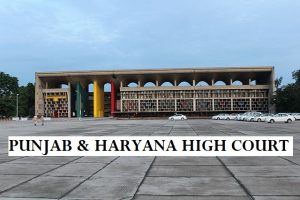 Facts of the Case: The petitioner filed a writ petition challenging the constitutional validity of Sections 69 and 132. The challenge was primarily on the grounds of lack of legislative competence and violation of Article 13 of the Constitution of India. The petitioner contended that the provisions authorizing arrest and prosecution under the GST regime were beyond the legislative powers conferred under the Constitution and infringed upon the fundamental rights guaranteed therein.
Facts of the Case: The petitioner filed a writ petition challenging the constitutional validity of Sections 69 and 132. The challenge was primarily on the grounds of lack of legislative competence and violation of Article 13 of the Constitution of India. The petitioner contended that the provisions authorizing arrest and prosecution under the GST regime were beyond the legislative powers conferred under the Constitution and infringed upon the fundamental rights guaranteed therein.
During the proceedings, the counsel for the State submitted that the issue raised in the present petition stood squarely covered by the Supreme Court’s landmark judgment in Radhika Agarwal v. Union of India & Ors., which had upheld the constitutional validity of Sections 69 and 132 of the CGST Act, 2017, provisions identical to those in the HGST (Haryana GST) Act.
Issue: Whether Sections 69 and 132 of the HGST Act, 2017, which empower the authorities to arrest and prosecute for GST offences, are constitutionally valid or ultra vires the powers conferred under Article 246-A of the Constitution.
Held that: The High Court dismissed the writ petition, holding that the challenge to the vires of Sections 69 and 132 of the HGST Act no longer survives in light of the authoritative pronouncement of the Supreme Court in Radhika Agarwal’s case
Relying on the Supreme Court’s reasoning, the Court noted that under Article 246-A of the Constitution, Parliament and the State Legislatures have plenary powers to legislate on GST, which inherently includes ancillary and incidental powers necessary for effective levy and collection of tax, including investigation, penalty, and prosecution mechanisms.
Further, noted that the power to summon, arrest, and prosecute under Sections 69 and 132 of the GST Acts is ancillary and incidental to the power to levy and collect GST and thus constitutionally valid. However, the power of arrest must be exercised cautiously, and the Commissioner must record “reasons to believe” based on tangible material that a non-bailable offence under Section 132(1)(a)–(d) has been committed, as elaborated by the Supreme Court.
Accordingly, the writ petition was dismissed, reaffirming that the constitutional validity of arrest and prosecution powers under GST law stands settled by the Supreme Court.
The High Court reaffirmed that Sections 69 and 132 of the HGST/CGST Act are intra vires, being ancillary to the power to levy and collect GST under Article 246-A. The ruling reiterates that while the power to arrest under GST is constitutionally valid, it must be exercised judiciously and supported by recorded reasons and sufficient material evidence.
Case Name: JIAHUA DECLRATION AND DESIGN ENGINEERING INDIA PVT. LTD. & ORS. v. THE UNION OF INDIA & ORS. dated 01.10.2025


